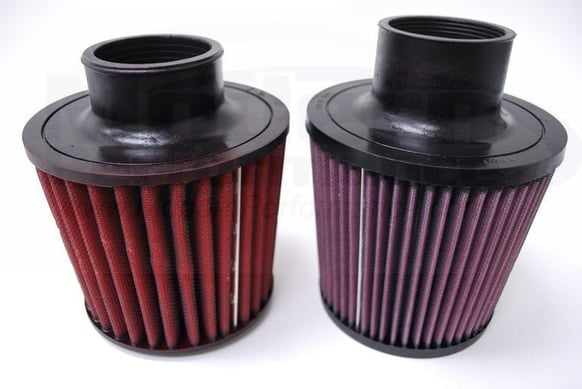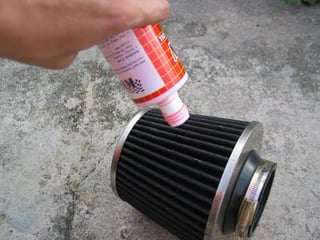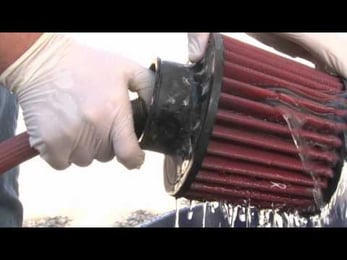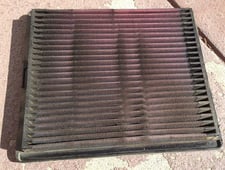Search for topics or resources
Enter your search below and hit enter or click the search icon.

Two things designed to do the same job differently. So what is the difference? Well first of all, there is the obvious… One is a dry filter while one is soaked in oil. But which one is the better one to run in your car?

Performance:
When it comes to performance, the oiled filter will typically flow a little more in terms of CFM because it has a larger micron size material. This doesn’t mean it will trap less particles either! The oil helps to trap more of the smaller particulate without sacrificing airflow. This gives the oiled filter a bit of a leg up over the dry flow in terms of performance, though the difference is probably not something you’d be able to feel.
Maintenance:
Cleanliness is next to Godliness… Regardless of which filter you are running, you have to keep it clean. A dirty filter will rob power and mpg’s and if it is sucking in crap, could hurt your engine as well.
 The cleaning process for oiled filters is a bit more extensive than dryflow. For oiled filters, you will need to get the necessary cleaner as well as oil for after you’ve cleaned the filter. To clean it, you use water and the cleaner and get all the dirt and oil out. After it dries out (takes some time), you will need to re-oil it being careful not to overdo the oil, and then you are ready to put it back in the car. The process takes an hour or two to do it right.
The cleaning process for oiled filters is a bit more extensive than dryflow. For oiled filters, you will need to get the necessary cleaner as well as oil for after you’ve cleaned the filter. To clean it, you use water and the cleaner and get all the dirt and oil out. After it dries out (takes some time), you will need to re-oil it being careful not to overdo the oil, and then you are ready to put it back in the car. The process takes an hour or two to do it right.
 For the dry flow filter, you just use a little warm soapy water or filter cleaner, and soak/agitate it a bit. After that, an easy rinse off is all you need to make the filter perform like new again. Once clean, let it dry, then reinstall. It is a faster/less messy process and if you are in a dusty environment, you can even blow the dry flow filter out with an air compressor for a quick clean without having to go through the full process as often.
For the dry flow filter, you just use a little warm soapy water or filter cleaner, and soak/agitate it a bit. After that, an easy rinse off is all you need to make the filter perform like new again. Once clean, let it dry, then reinstall. It is a faster/less messy process and if you are in a dusty environment, you can even blow the dry flow filter out with an air compressor for a quick clean without having to go through the full process as often.
Life Expectancy:
Both filters will last about the same amount of time. The oiled filters tend to get dirtier faster though and you will probably find yourself cleaning them more often. The amount of time you clean your filter really depends on how dusty your environment is. It is generally a good practice to clean them every other oil change though just to be safe.
Drawbacks:
 Though the oiled filter tends to perform a bit better, there are a couple more draw backs to it. With MAF cars, you really have to be careful you don’t over oil the filter. If any of the oil comes off and gets on the MAF sensor, you are going to run into tuning nightmares, check engine lights, etc…
Though the oiled filter tends to perform a bit better, there are a couple more draw backs to it. With MAF cars, you really have to be careful you don’t over oil the filter. If any of the oil comes off and gets on the MAF sensor, you are going to run into tuning nightmares, check engine lights, etc…
Oiled filters are also a pain to clean. It typically requires more down time than the dry filter. Plus you have to purchase oil and cleaner for it separately. Either way though, it is often a good idea to have a back-up filter so you can simply switch out your dirty filter for a clean filter, then clean the dirty one and save it for the next time.
Topics: